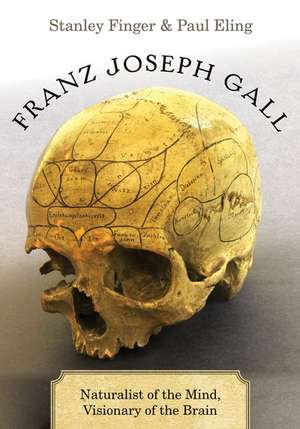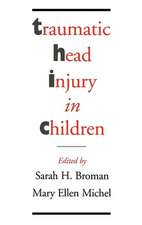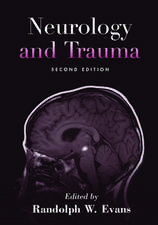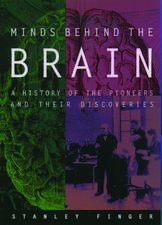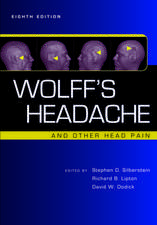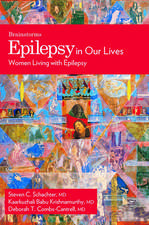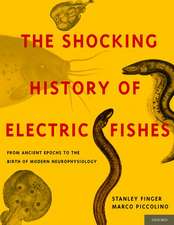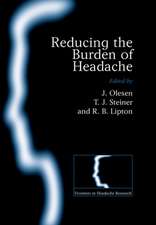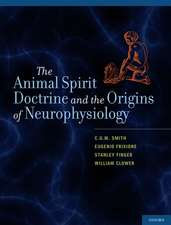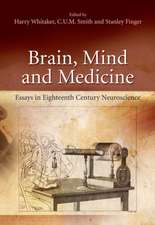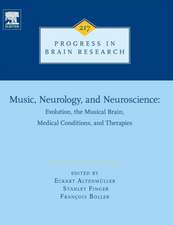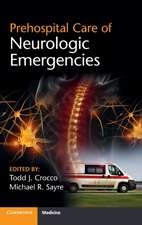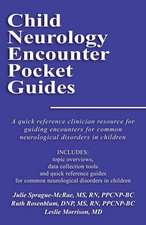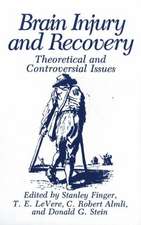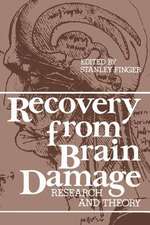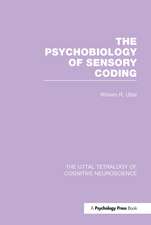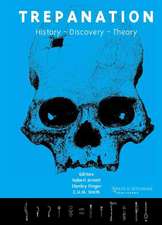Franz Joseph Gall: Naturalist of the Mind, Visionary of the Brain
Autor Stanley Finger, Paul Elingen Limba Engleză Hardback – 13 iun 2019
Preț: 1056.79 lei
Preț vechi: 1112.41 lei
-5% Nou
Puncte Express: 1585
Preț estimativ în valută:
202.24€ • 219.60$ • 169.88£
202.24€ • 219.60$ • 169.88£
Carte disponibilă
Livrare economică 01-15 aprilie
Preluare comenzi: 021 569.72.76
Specificații
ISBN-13: 9780190464622
ISBN-10: 0190464623
Pagini: 584
Dimensiuni: 257 x 180 x 41 mm
Greutate: 1.23 kg
Editura: Oxford University Press
Colecția OUP USA
Locul publicării:New York, United States
ISBN-10: 0190464623
Pagini: 584
Dimensiuni: 257 x 180 x 41 mm
Greutate: 1.23 kg
Editura: Oxford University Press
Colecția OUP USA
Locul publicării:New York, United States
Recenzii
I must say that I absolutely enjoyed and wholeheartedly recommend Stanley Finger and Paul Eling's Franz Joseph Gall: Naturalist of the Mind, Visionary of the Brain ... .It is also more than just a biography. Rather, it is a detailed snapshot of the scientific, philosophical, and even theological thinking, as well as of the prevailing social conditions - as they relate to science - at the end of the 18th century.
[This book is] something special, and deserves to be carefully read, pondered, and added to the literature on psychology's origins and establishment. The authors present beautiful evidence that as they put it, "... Gail is still with us today, knowing that how he shaped many modern disciplines has largely been forgotten".
The beauty of this book is that it is so packed with information that you can spend months following the paths of Gall's ideas for the past 200 years.
In this voluminous 564-page book, the authors go beyond the story of a life and present a real history of the origins of neuroscience, in particular, neuropsychology, in 20 information-dense chapters that remain highly readable ... The result is not only a biography of Franz Joseph Gall but also a research tool.
[This book is] something special, and deserves to be carefully read, pondered, and added to the literature on psychology's origins and establishment. The authors present beautiful evidence that as they put it, "... Gail is still with us today, knowing that how he shaped many modern disciplines has largely been forgotten".
The beauty of this book is that it is so packed with information that you can spend months following the paths of Gall's ideas for the past 200 years.
In this voluminous 564-page book, the authors go beyond the story of a life and present a real history of the origins of neuroscience, in particular, neuropsychology, in 20 information-dense chapters that remain highly readable ... The result is not only a biography of Franz Joseph Gall but also a research tool.
Notă biografică
Stanley Finger received his PhD from Indiana University and has been on the faculty of Washington University in St. Louis since that time. His is currently Professor Emeritus in the Department of Psychological and Brain Sciences at Washington University, and affiliated with the school's History of Medicine Program. His focus has been on the history of the neurosciences, notably brain and behavior, electric fishes in the history of neurophysiology, Benjamin Franklin's medicine, and how the neurosciences have long been reflected in the arts (e.g., painting, literature, and music). He has served as the editor of the Journal of the History of the Neurosciences for 20 years; was the first President of the International Society for the History of the Neurosciences; and has received many honors, including the latter society's lifetime achievement award in 2016. Paul Eling studied Psychology at the Catholic University Nijmegen (currently: Radboud University), specializing in cognitivepsychology and finishing his dissertation, titled 'Studies on laterality: Controversial issues in the approach of hemisphere specialization' in 1983. After working for 2 years as a post-doc on an aphasia project at the Max Planck Institut fur Psycholinguistik in Nijmegen, he returned to the university, becoming an assistant professor at the department of Biopsychology, and later an associate professor, teaching neuropsychology. He was involved in a broad range of research projects, examining primarily cognitive disorders following brain lesions. Apart from publishing scientific papers, he was involved as author and editor of a series of books, including textbooks in the area of neuropsychology and neuropsychiatry and books on topics from the history of the neurosciences. In addition, he has always had a great interest in the history of the neurosciences, has been a member of the International Society of the History of the Neurosciences, acted twice as Chairman of this Society and is currentlyeditor of the Journal of the History of the Neurosciences.
